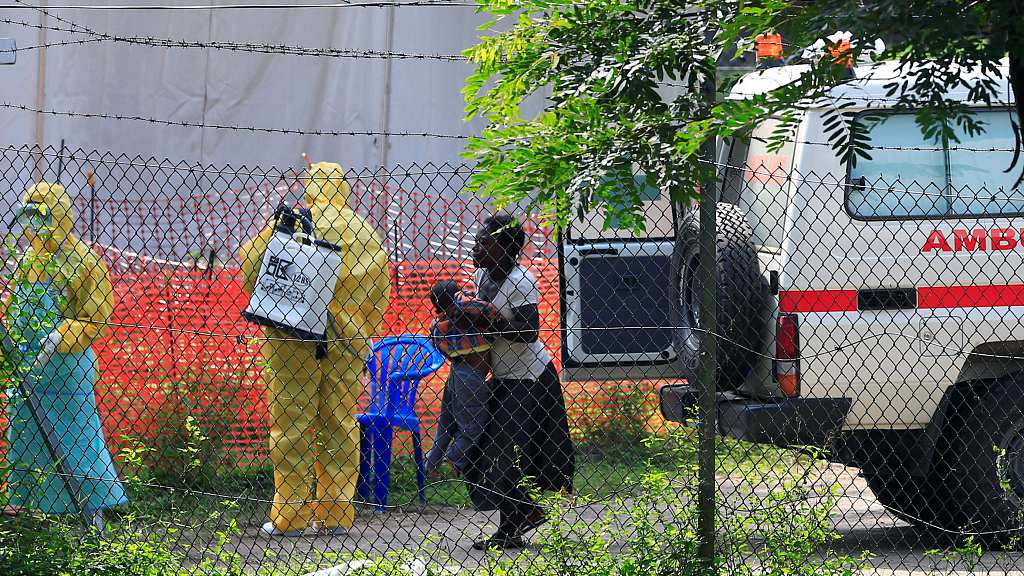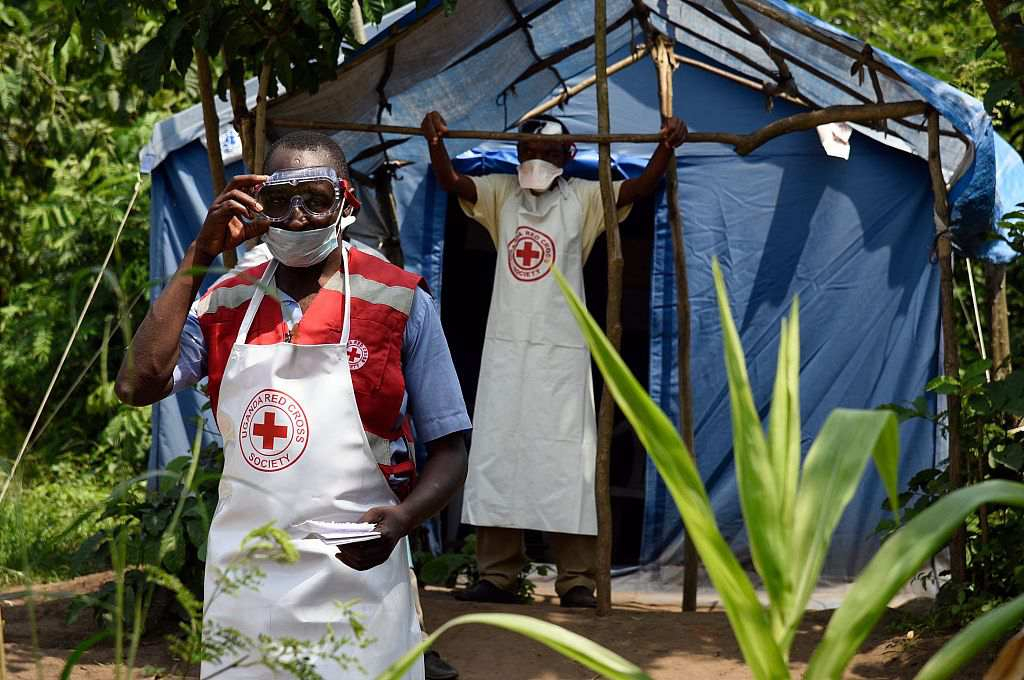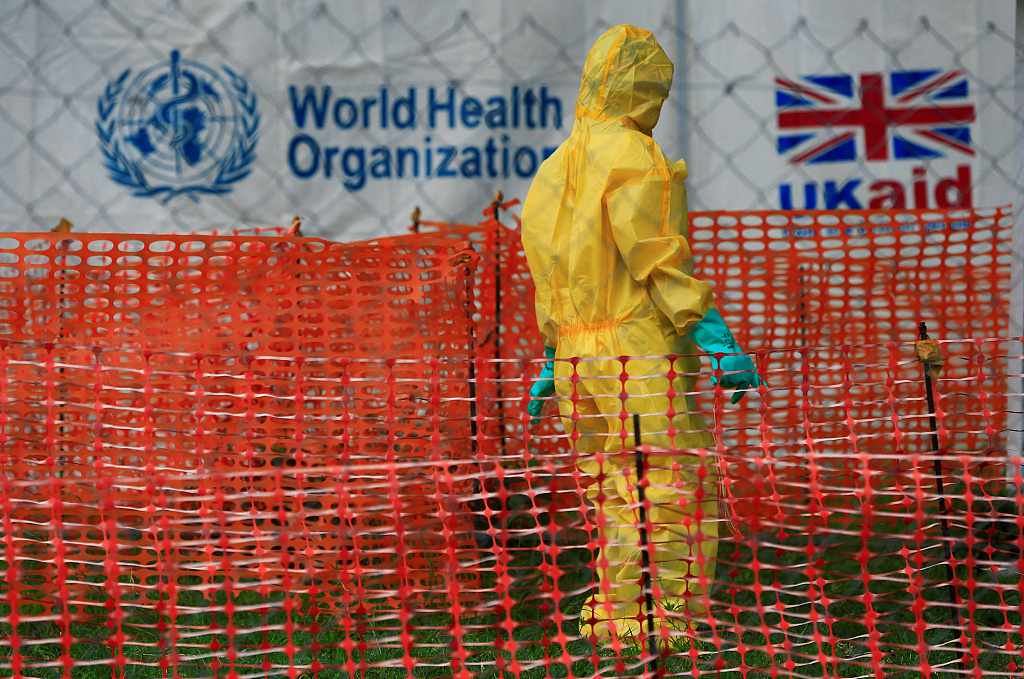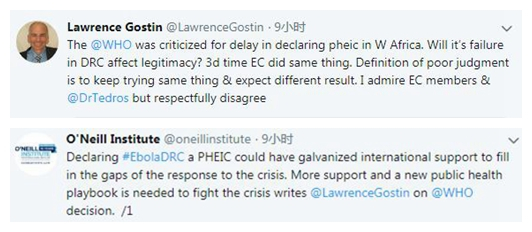

The World Health Organization says the Ebola virus outbreak in Congo – which spread to Uganda this week – does not yet merit being declared a global emergency but is "an extraordinary event" of deep concern.
The UN health agency convened its expert committee for the third time Friday to assess the outbreak, which has killed more than 1,400 people. Some experts say the outbreak met the criteria to be designated an international emergency long ago.
At a press briefing following the meeting, Dr. Preben Aavitsland, the acting chair of the committee, announced that the outbreak is "a health emergency in the Democratic Republic of the Congo" but that the situation does not yet meet the criteria for being declared a global emergency.
The outbreak was announced on August 1 in eastern Congo and has become the second-deadliest in history, after the West African outbreak in 2014 that killed more than 11,300 people.

Health workers stand at a non-gazetted crossing point in the Mirami village, near the Mpondwe border check point between Uganda and the Democratic Republic of Congo on June 14, 2019. /VCG Photo
Uganda announced two more cases of Ebola on Wednesday, confirming the first spread of a deadly outbreak beyond the borders of the Democratic Republic of Congo.
"The spread of Ebola to Uganda is a new development but the fundamental dynamics of the outbreak haven't changed," said WHO director-general Tedros Adhanom Ghebreyesus.
Ugandan authorities have now drawn up a list of 98 contacts, or contacts of contacts, potentially exposed to the Ebola virus, of whom 10 are considered "high risk," said Mike Ryan, executive director of WHO's emergencies program. Vaccination of those contacts and health workers with a Merck experimental vaccine is to start on Saturday, he said.

There are all together four times that have been declared PHEIC in the past decade. /VCG Photo
There are all together four times that have been declared "public health emergency of international concern" (PHEIC) in the past decade, inlcuding the worst-ever Ebola outbreak that hit West Africa in 2014-2016, an influenza pandemic in 2009, polio in 2014 and the Zika virus in 2016.
Some medical groups expressed their disagreement with the UN declaration.
Lawrence Gostin, a global health law professor at Georgetown University Law School, voiced disappointment that the panel had failed to declare an emergency for the third time.

Twitter Screenshot
"The @WHO was criticized for delay in declaring a PHEIC in W Africa. Will it's failure in DRC affect legitimacy?" Gostin tweeted. He said he admired the panel members but disagreed with their conclusion.
"Declaring #EbolaDRC a PHEIC could have galvanized international support to fill in the gaps of the response to the crisis," tweeted O'Neill Institute for National and Global Health Law, which Gostin directs.
(With input from Reuters)

Copyright © 2018 CGTN. Beijing ICP prepared NO.16065310-3
Copyright © 2018 CGTN. Beijing ICP prepared NO.16065310-3